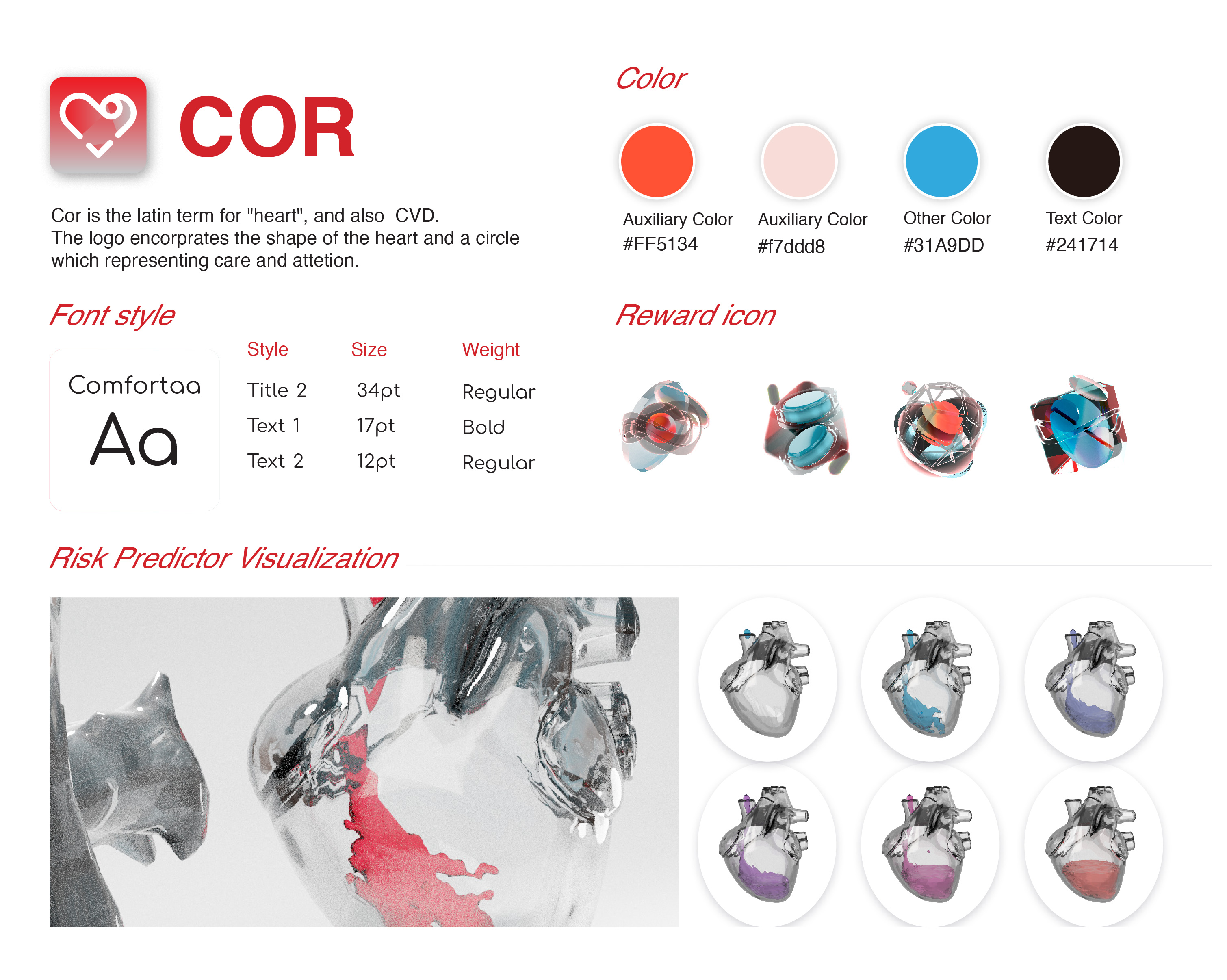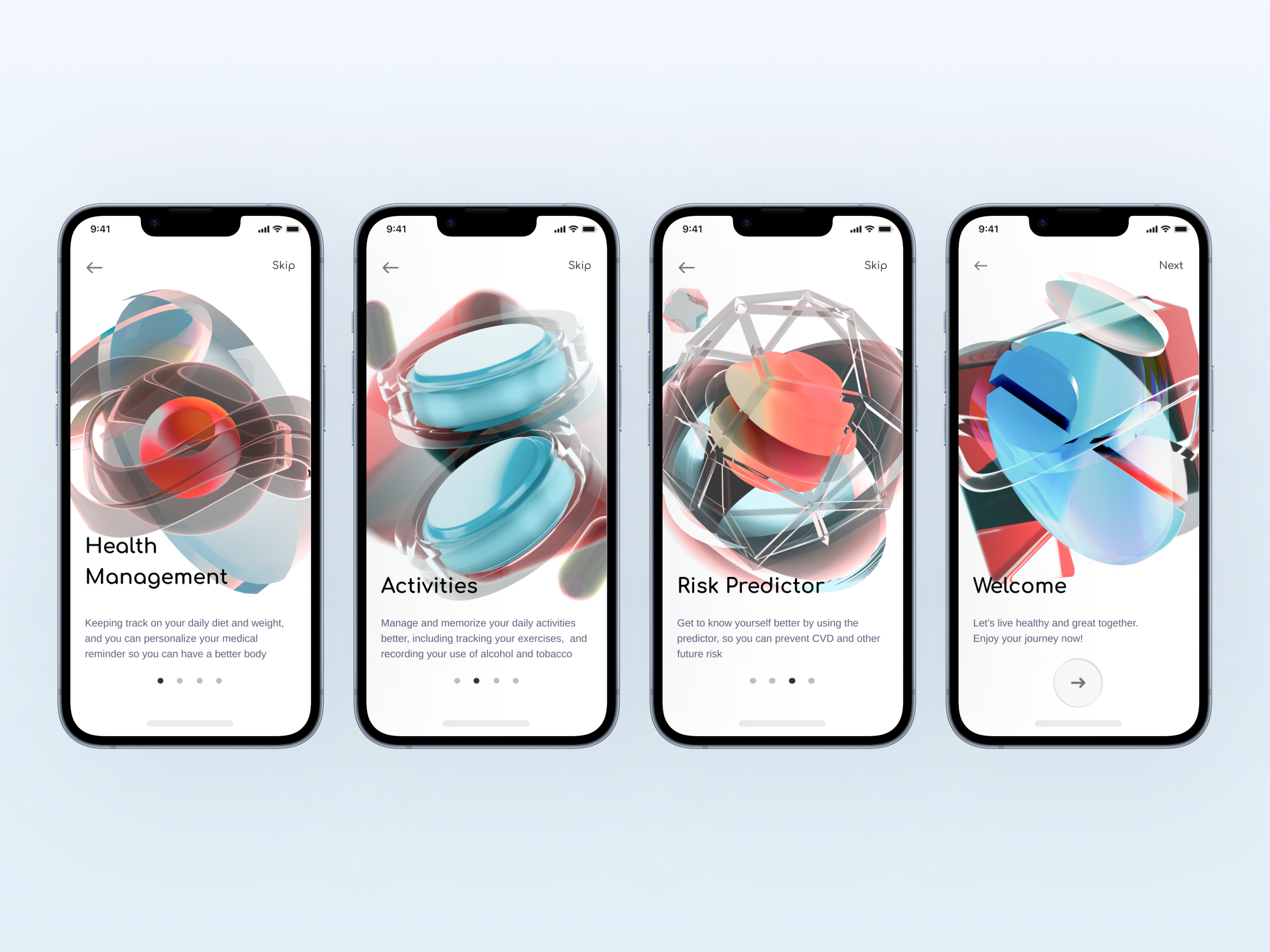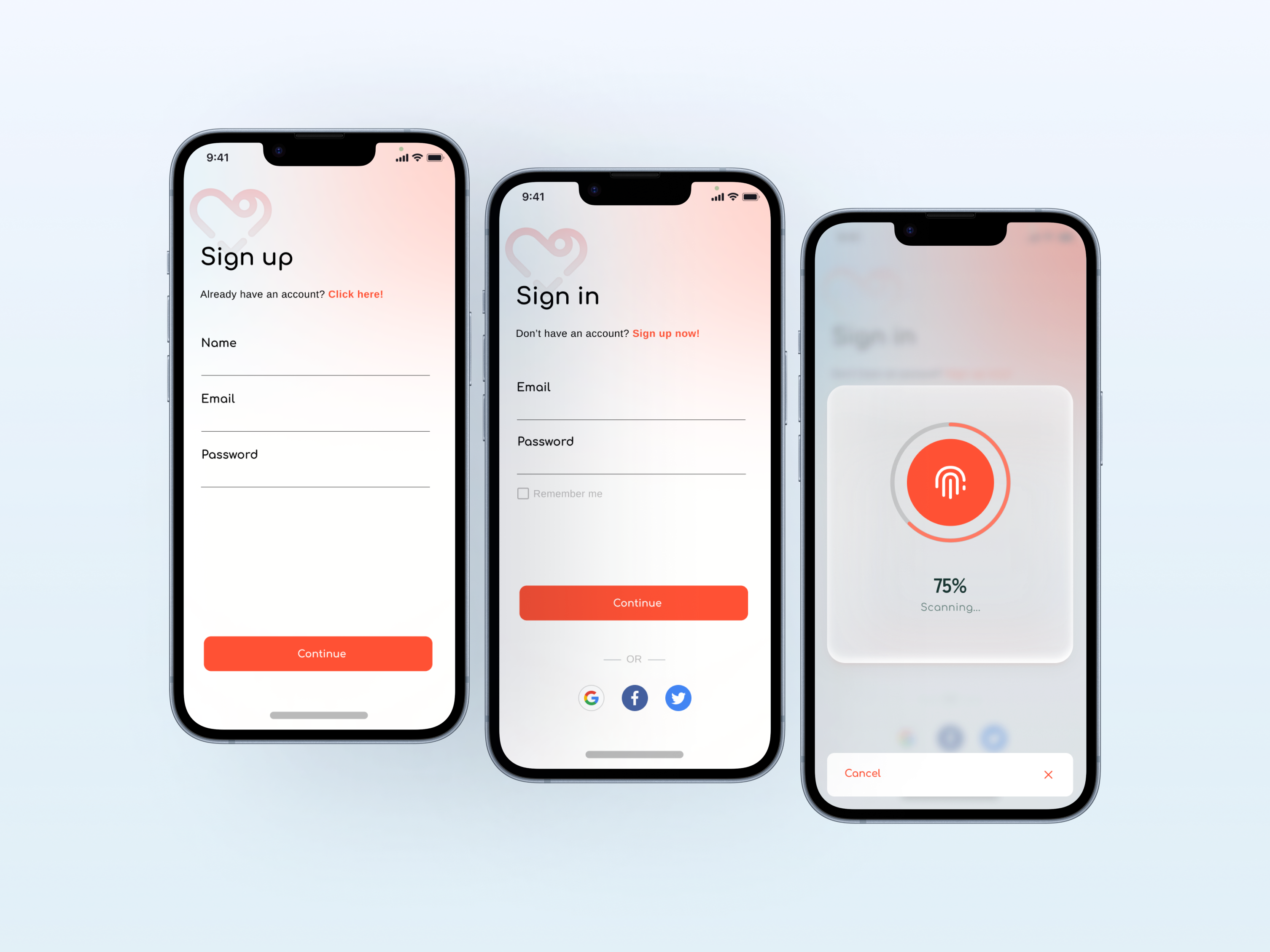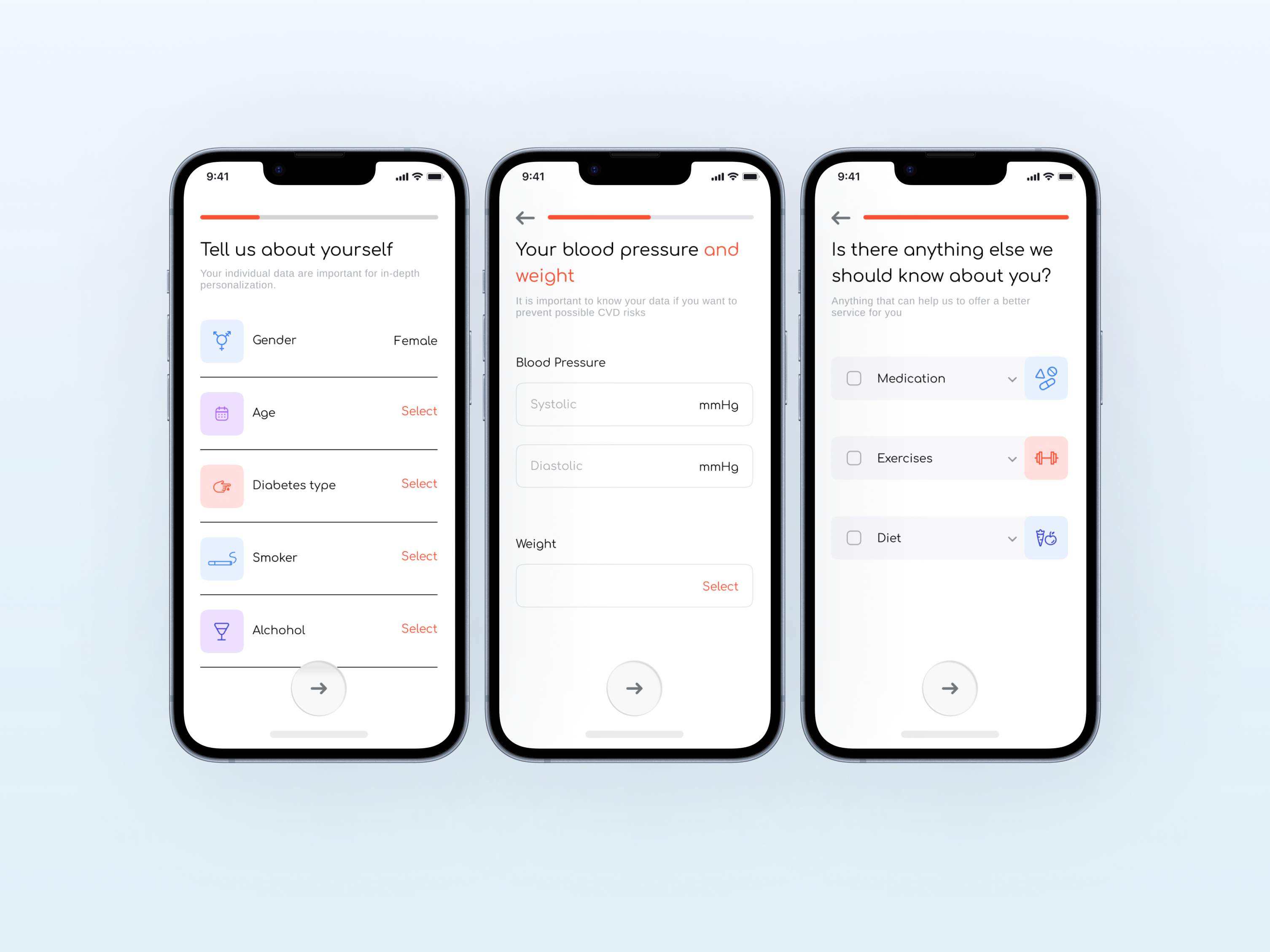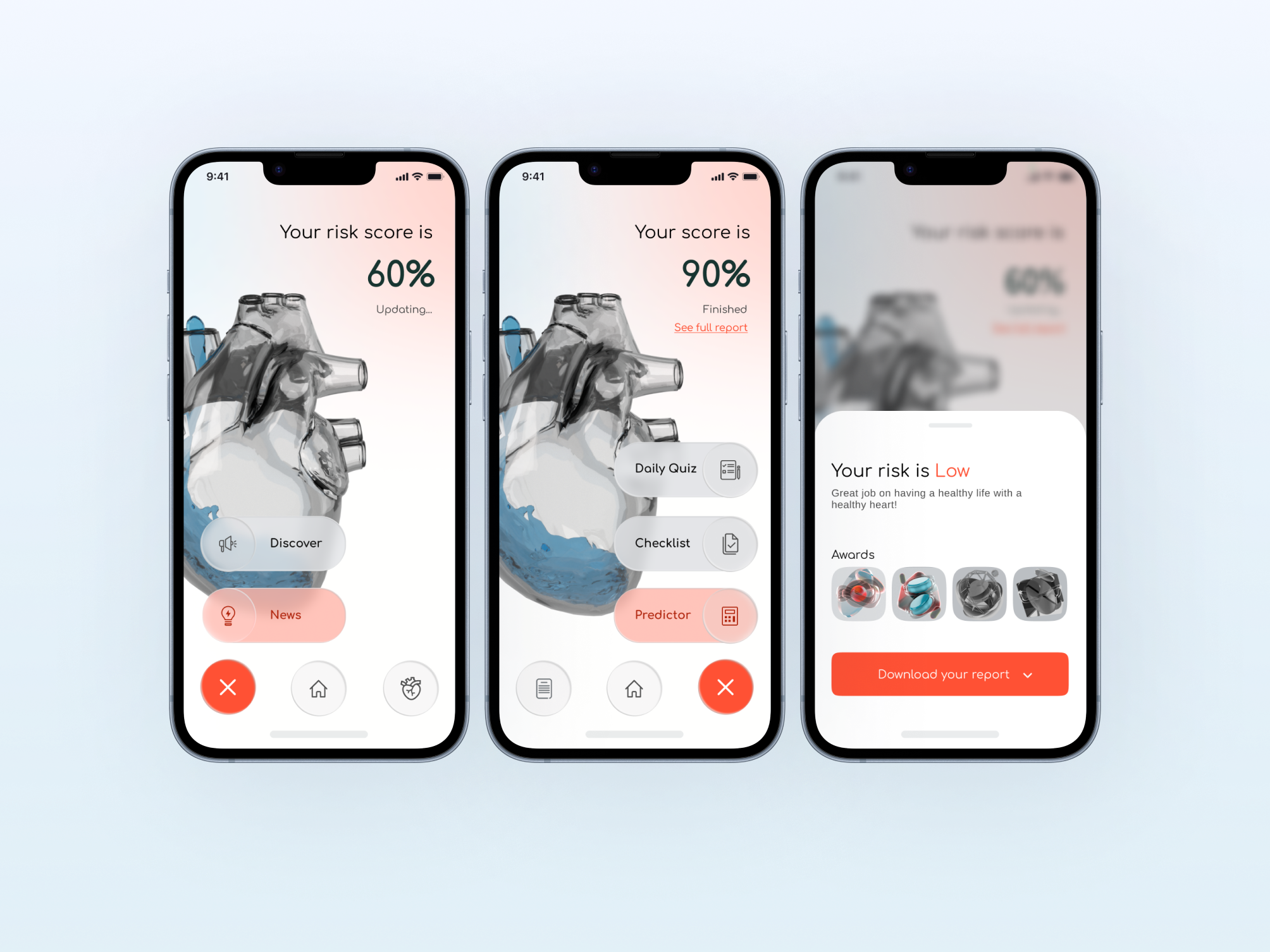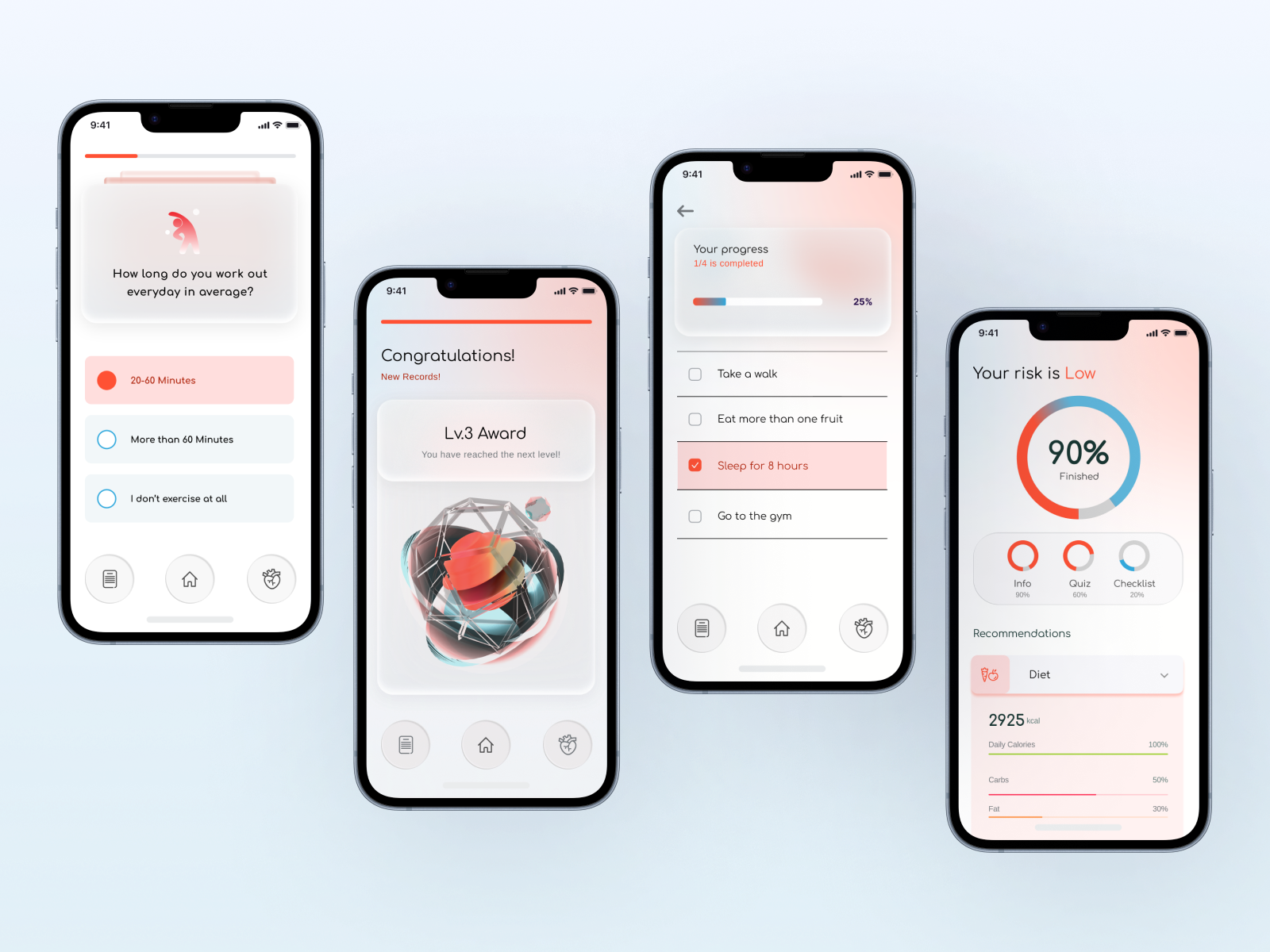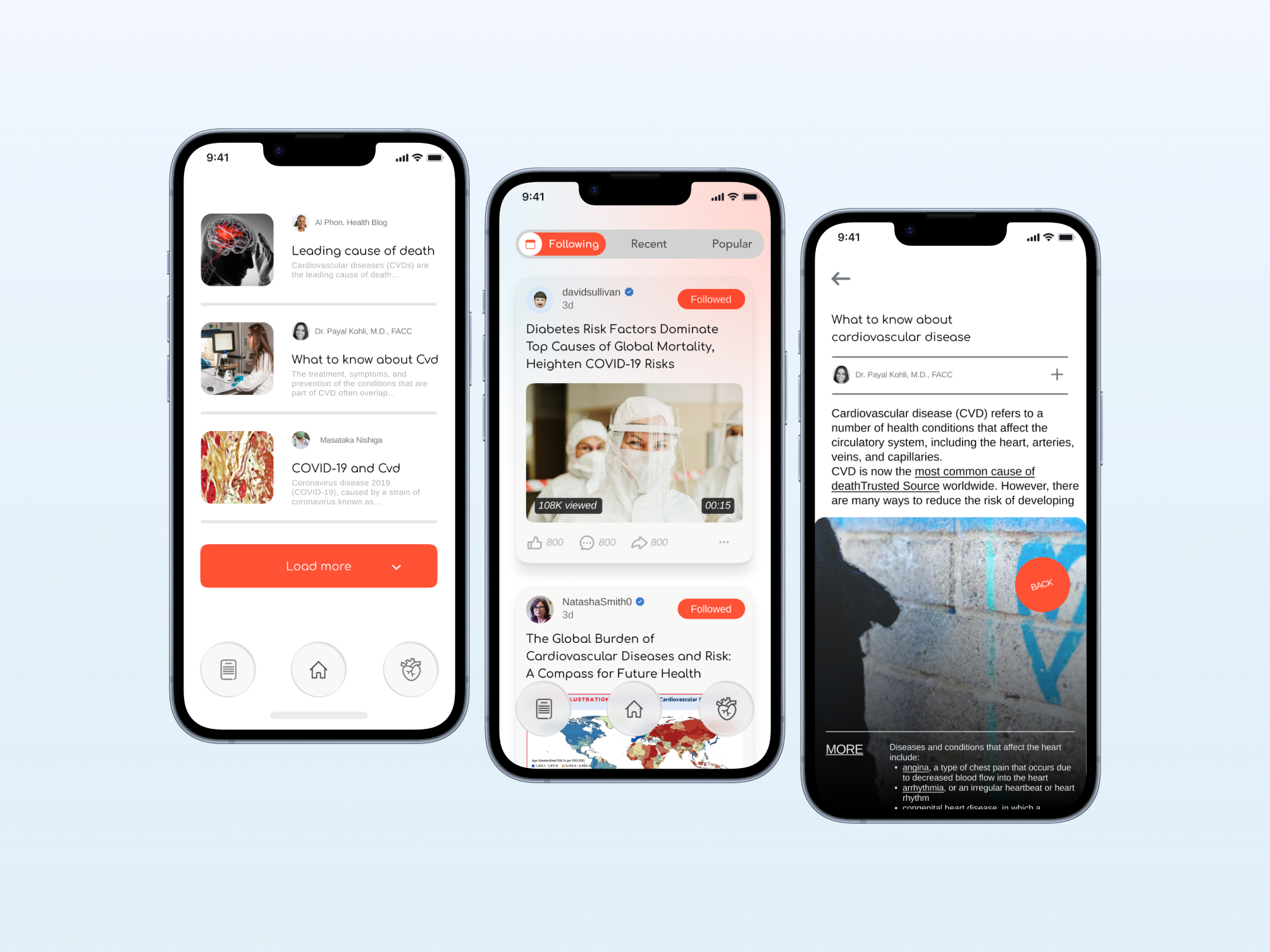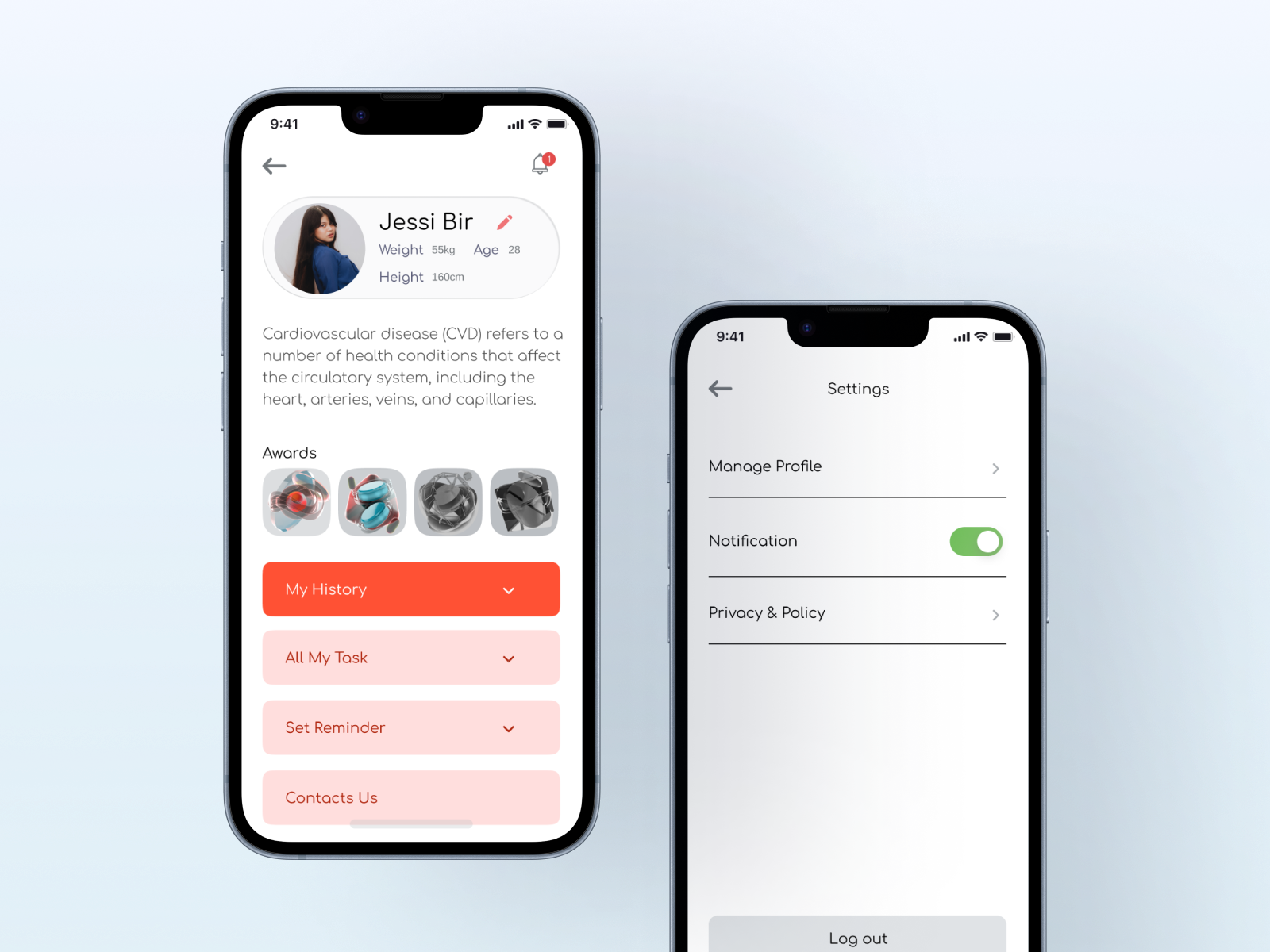Research & Process
Background Research
To create a solution that meaningfully addresses cardiovascular health, it was essential to first understand the scale of the problem. This research summary outlines key facts, risk factors, and emergency response challenges that shaped the foundation of the Cor app.
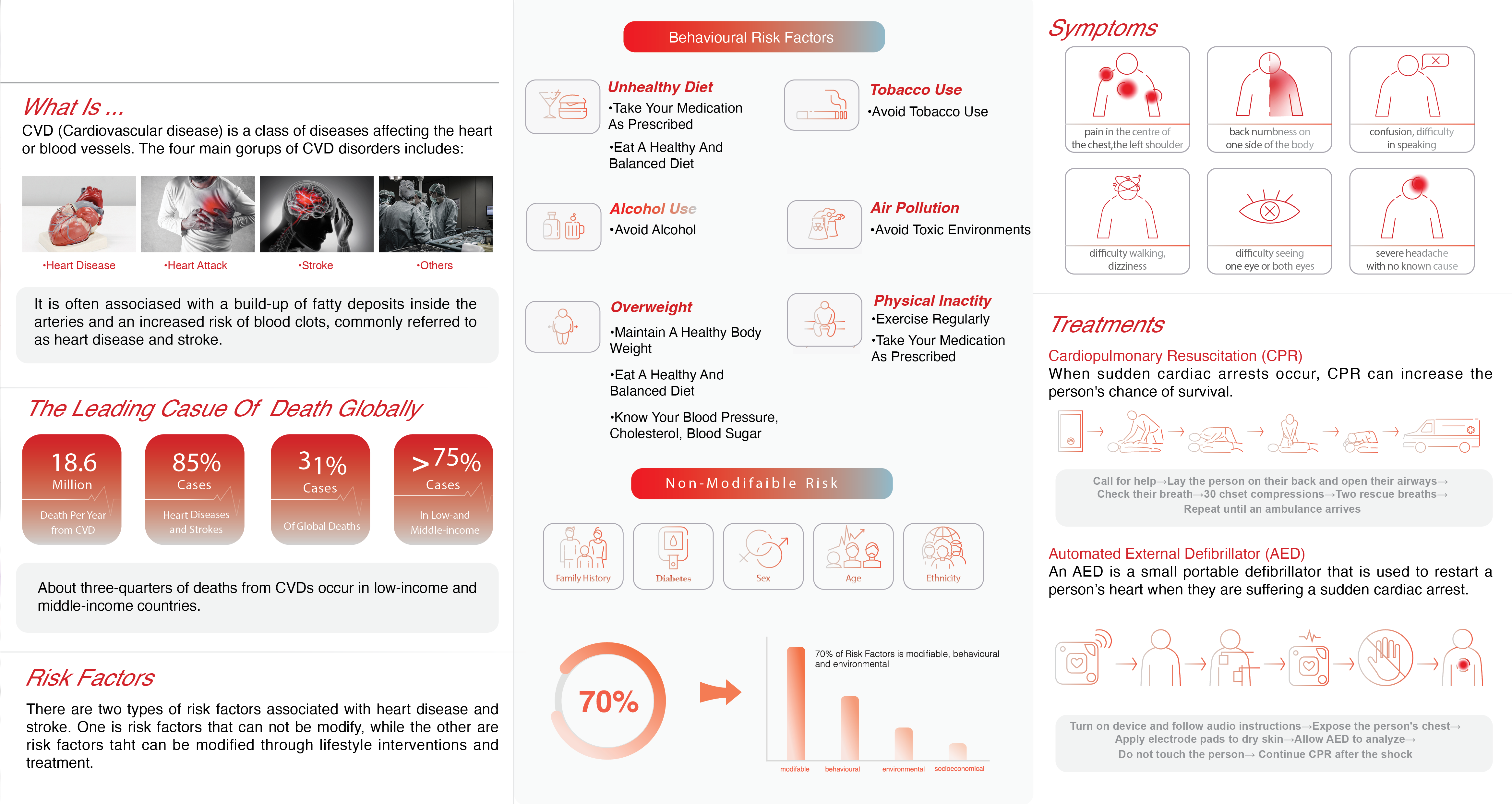
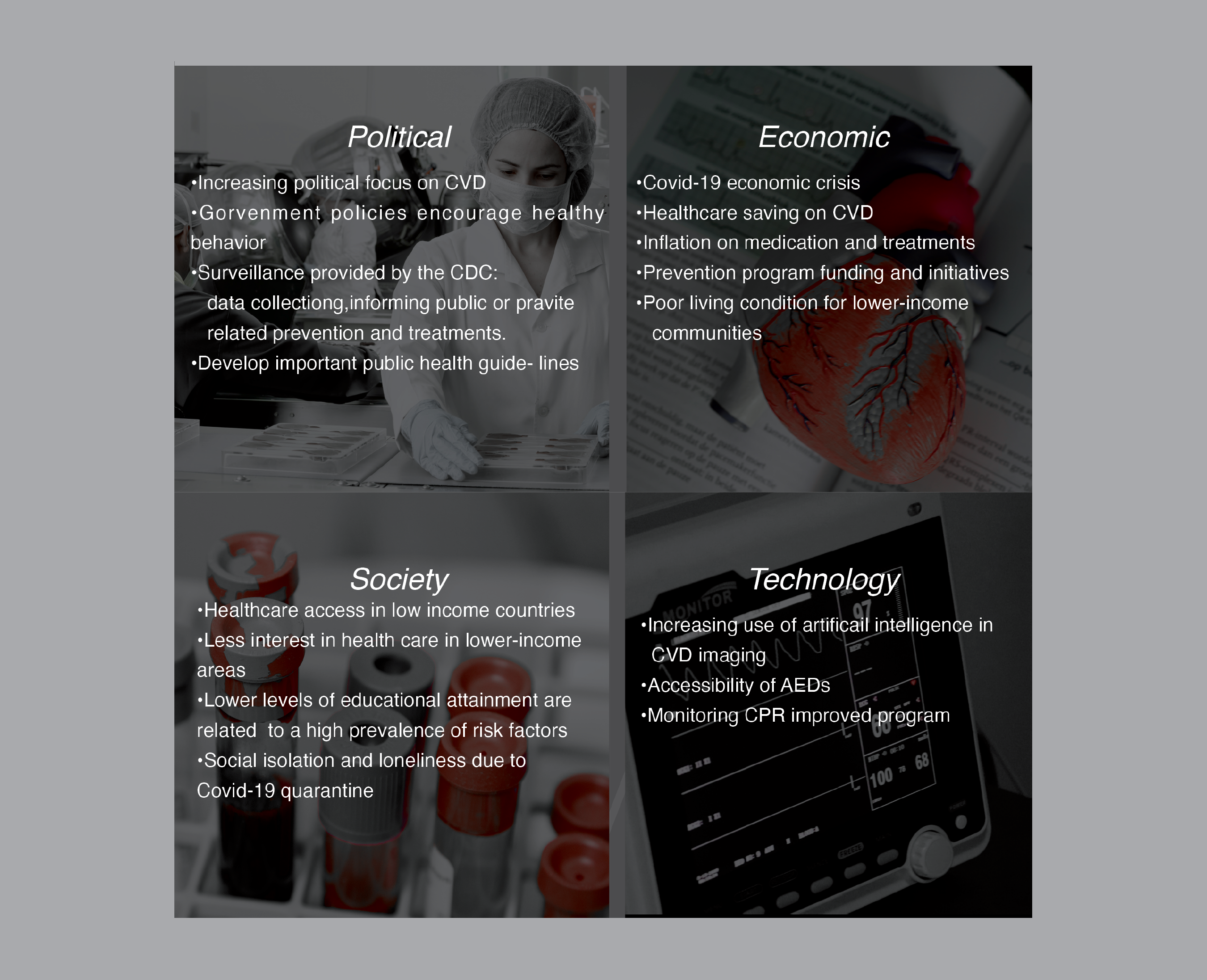
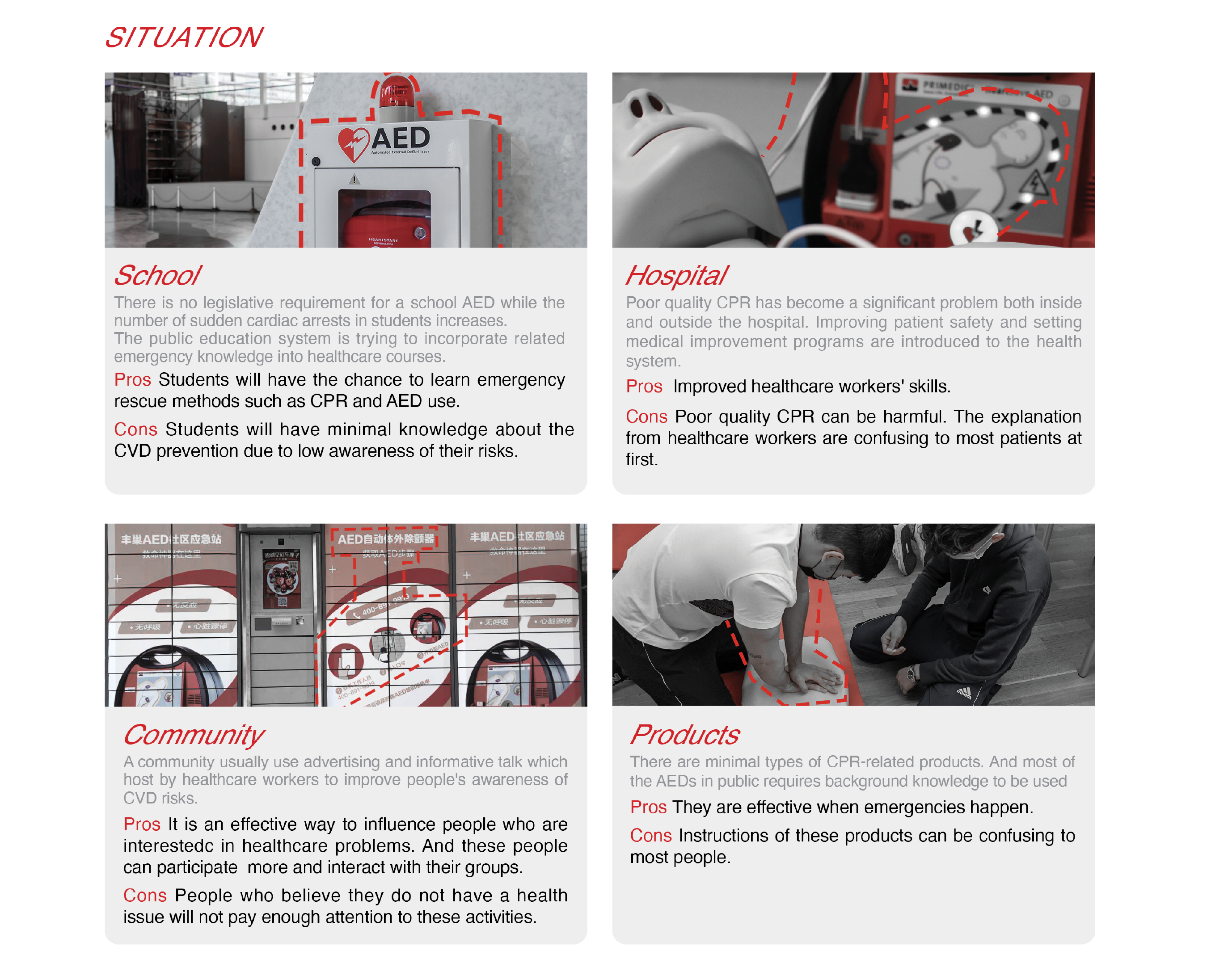
User Interviews
To explore the challenges in cardiovascular disease (CVD) awareness and prevention, primary interviews were conducted with two individuals of different ages and health backgrounds. Their responses highlighted common issues such as low awareness of CVD symptoms, difficulty understanding medical information, and lack of confidence in identifying or preventing CVD risks.
Based on the initial findings, in-depth interviews were carried out with the same participants to further investigate their experiences with diagnosis, lifestyle habits, and access to emergency knowledge such as CPR and AED. The interviews provided valuable insights into existing barriers in CVD education and self-management.
Design Goal & Need
The Cor app is designed to address key user pain points related to cardiovascular disease (CVD) awareness, prevention, and emergency response. Users need a clear and accessible way to measure and understand their CVD risk, especially in daily life contexts. Many face challenges interpreting unclear test results or navigating medical information without professional support.
In addition, the lack of popularized, easy-to-understand CVD education—particularly for young or non-medically trained individuals—creates a barrier to prevention. Users also express confusion about emergency life-saving instructions, such as how to use AEDs or perform CPR.
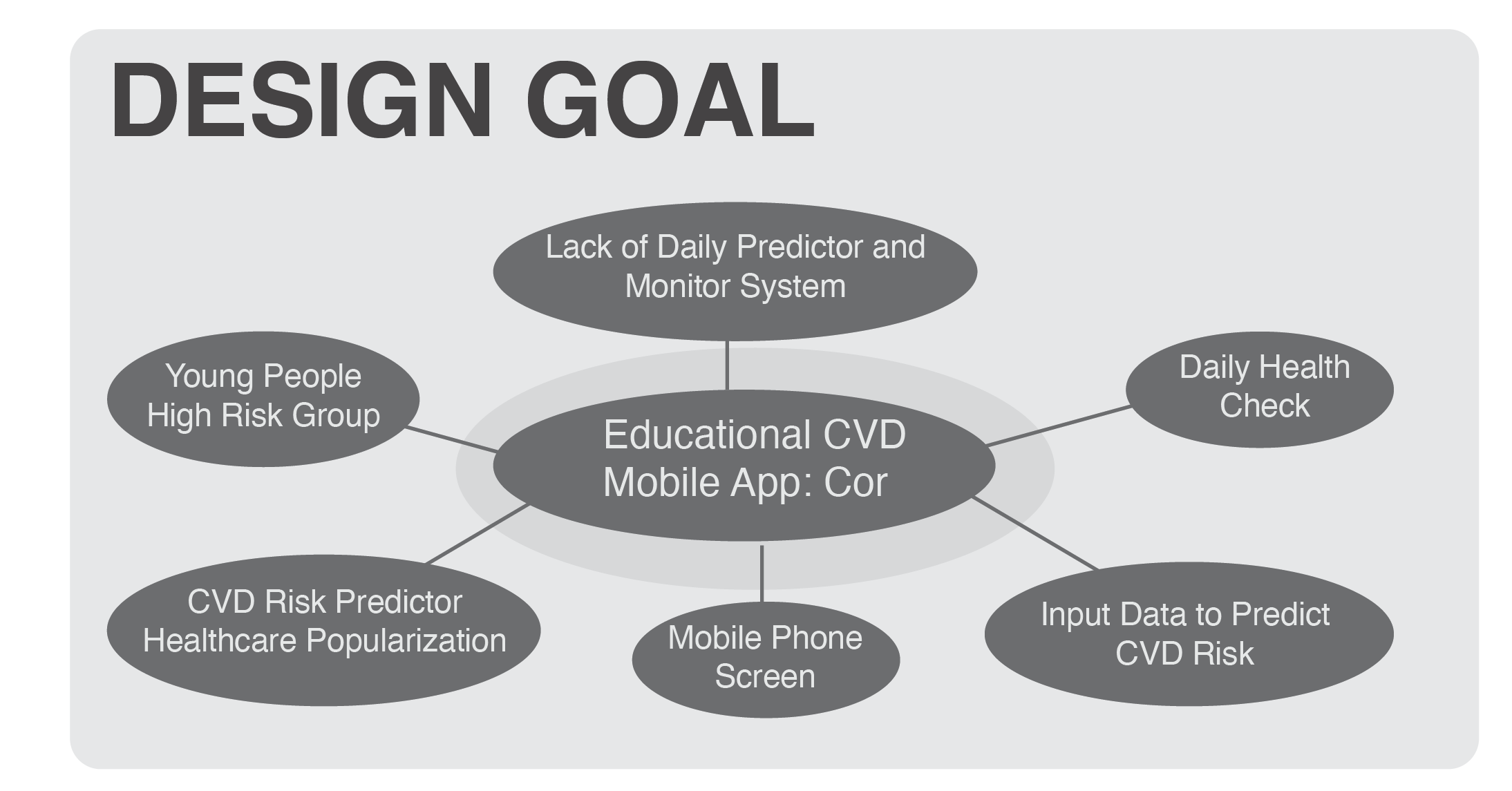

Key Takeaways
01
Participants expressed difficulty in understanding medical terminology and navigating complex diagnostic processes. This led to confusion and delays in seeking or promoting treatment.
02
Many participants were unfamiliar with the term “CVD” and its associated symptoms, risks, or prevention methods. Basic concepts like CPR and AED use were also not well understood.
03
Users found it difficult to recognize and describe early symptoms of CVD, particularly to others who are not medically trained.
04
Although participants acknowledged unhealthy habits, most did not associate them directly with CVD risk or feel motivated to change without clear, personalized guidance.
05
Even after diagnosis, users reported that they only started learning about CVD risks late in the process. Preventive measures like regular monitoring or behavior change were not part of their routine.
06
Participants highlighted the need for friendlier, more accessible health education, especially for those without a medical background or those in early-risk groups.
Mapping the Experience
To translate user needs into a clear and functional experience, the information architecture was first mapped out to define core features and content hierarchy. Based on this structure, low-fidelity wireframes were created to explore layout, user flow, and interaction logic, ensuring that key functions like risk assessment and daily tracking are intuitive and accessible.
Information Architecture
Wireframe
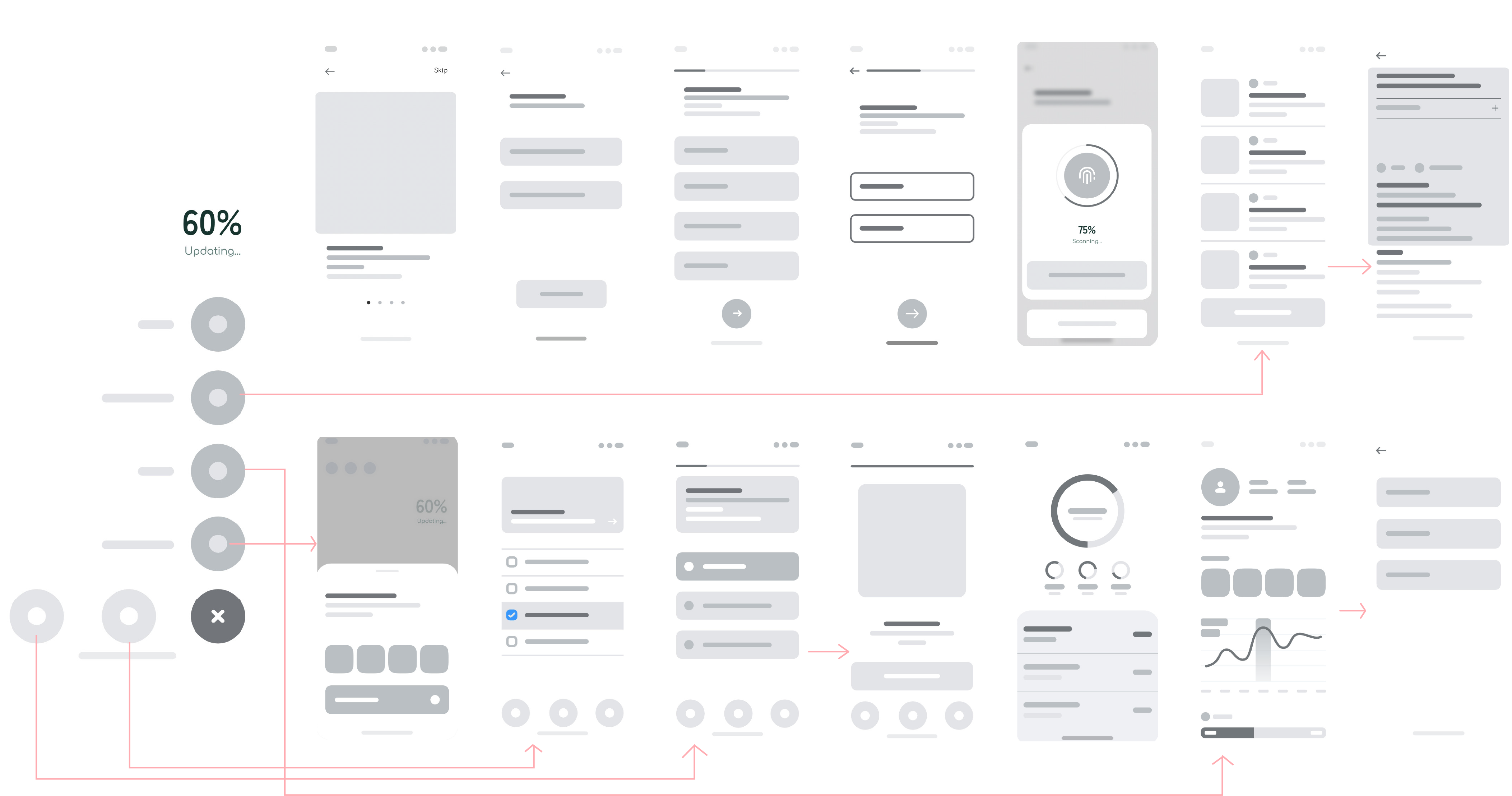
Design
System
